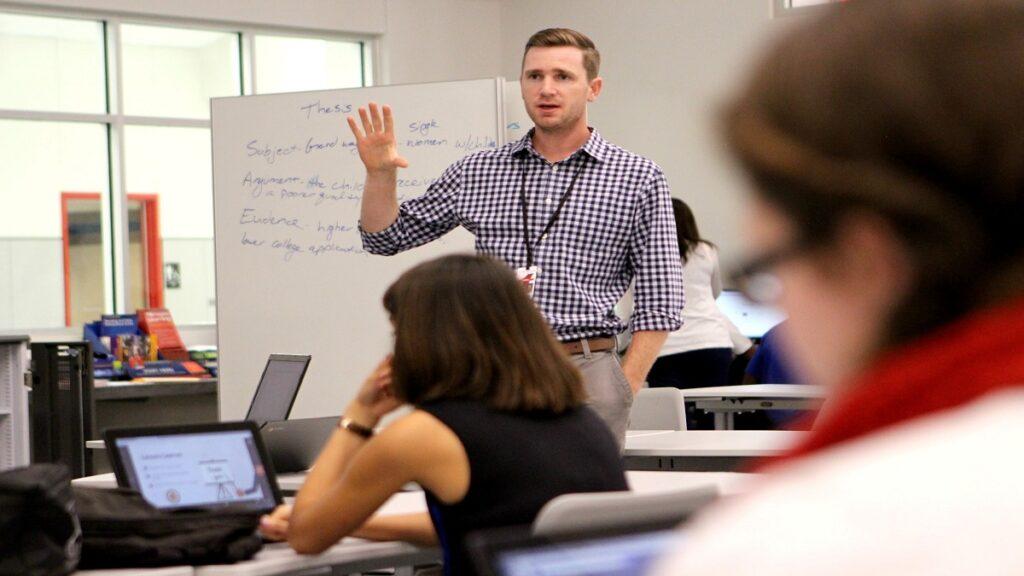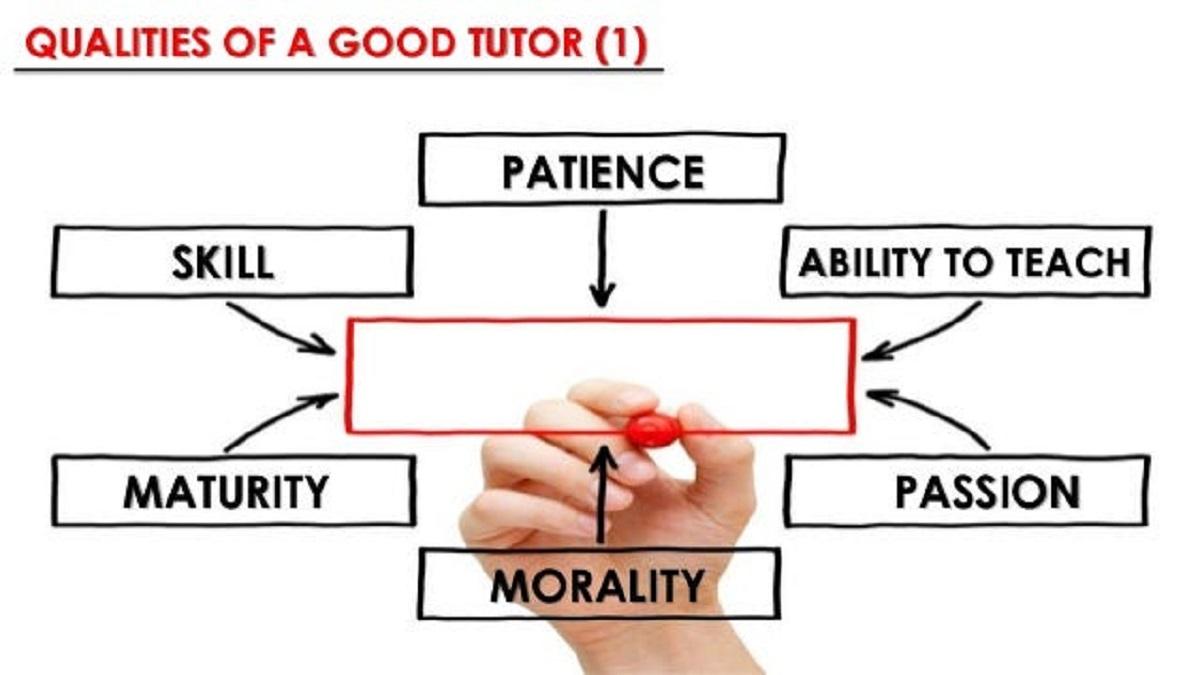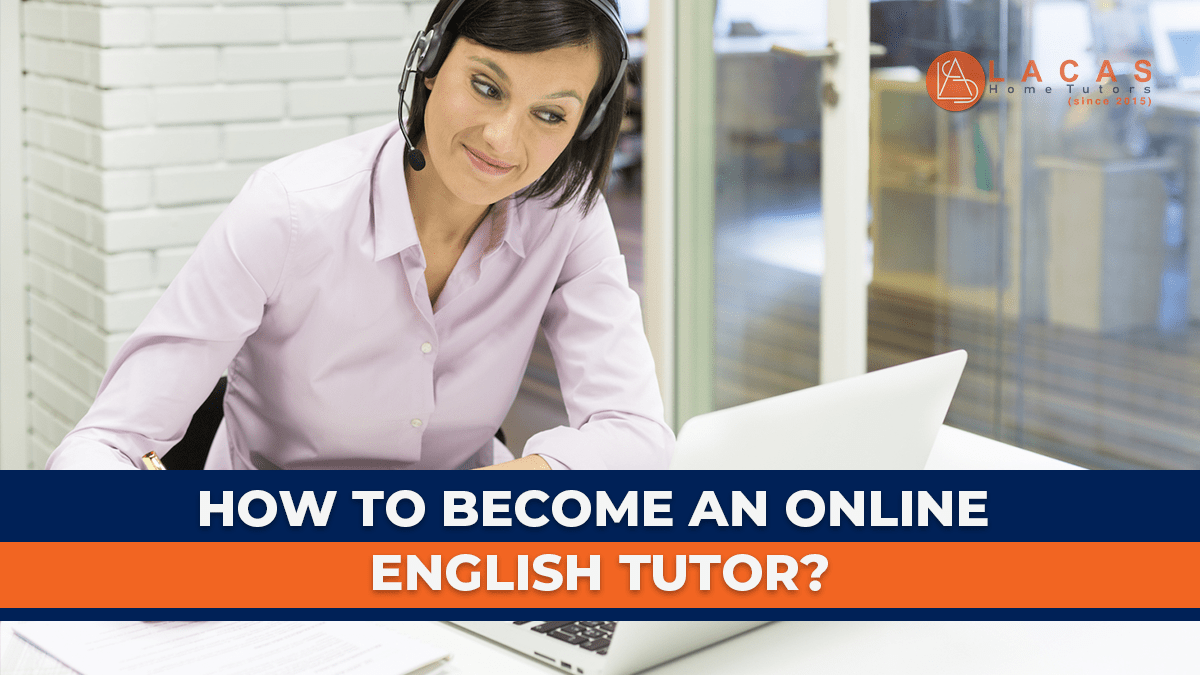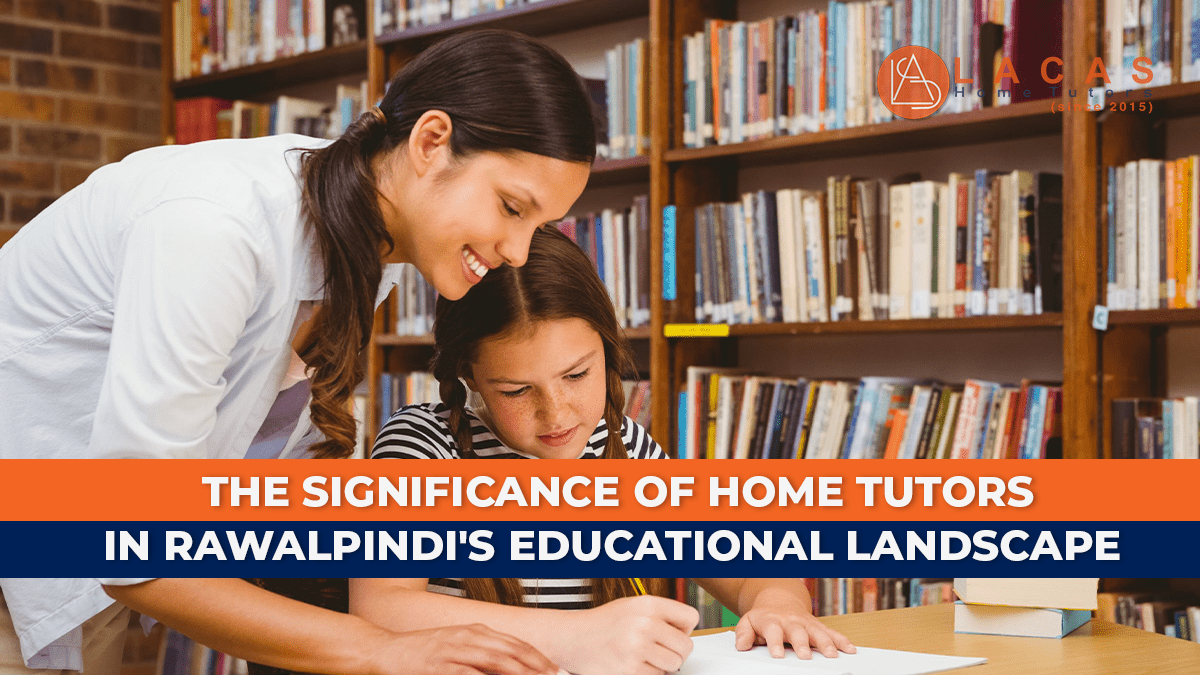A good tutor possesses a unique set of qualities that go beyond subject knowledge and academic expertise. While expertise in the academic area is essential, being a good tutor involves much more. A good tutor understands the importance of effective communication, adaptability, patience, empathy, and building rapport with students. They have a passion for teaching and a genuine desire to foster a love for learning in their students. Furthermore, a good tutor continuously strives for personal growth, embraces continuous learning, and demonstrates professionalism and reliability.
Strong Academic Background
A strong academic background is one of the most crucial qualities that sets a good tutor apart. When looking for a tutor, it’s important to find someone who has a deep understanding of the subject matter they will be teaching. A tutor with a strong academic background will have the knowledge and expertise to provide effective instruction and guidance to their students.
A level tutoring services, for example, require tutors who have a solid understanding of the subject matter and curriculum. A tutor with a strong academic background in O level subjects will be able to explain complex concepts in a clear and concise manner, making it easier for students to grasp and retain the information.
Additionally, a tutor with a strong academic background will be able to adapt their teaching style to the individual needs of each student. They will have a wealth of knowledge and resources at their disposal, allowing them to provide personalized instruction and support.
Overall, a tutor with a strong academic background is essential for ensuring that students receive the highest quality of education and support. They will have the knowledge, skills, and expertise needed to help students succeed academically and reach their full potential.
Effective Communication Skills
Effective communication skills are essential for a good tutor to effectively convey information and engage with their students. A tutor’s ability to communicate clearly and concisely can greatly impact a student’s understanding and retention of the subject matter.
When it comes to O level tutoring services, effective communication skills are even more important. O level subjects often involve complex concepts that can be difficult for students to grasp. A tutor with strong communication skills will be able to break down these concepts and explain them in a way that is easily understandable to students. They will use simple and concise language, avoiding jargon or technical terms that may confuse students.
Furthermore, effective communication skills go beyond just explaining concepts. A good tutor will actively listen to their students, asking questions to ensure understanding and addressing any misconceptions. They will create an open and supportive environment where students feel comfortable asking questions and seeking clarification.
In addition to verbal communication, non-verbal communication is also important. A good tutor will use body language, facial expressions, and gestures to enhance their communication and connect with their students on a deeper level. They will maintain eye contact, use appropriate facial expressions, and display positive body language to foster trust and engagement.
Overall, effective communication skills are a fundamental quality that every good tutor should possess. It is through effective communication that a tutor can establish a strong rapport with their students, promote a positive learning environment, and help students achieve academic success in O level tutoring services.
Adaptability to Different Learning Styles
Adaptability to different learning styles is a crucial quality that sets a good tutor apart from the rest. Every student has a unique way of learning and understanding information, and a good tutor understands this. They can adapt their teaching methods and approaches to accommodate the individual needs and learning styles of their students.
Some students may be visual learners, meaning they understand information best when it is presented in a visual format, such as through diagrams, charts, or videos. Other students may be auditory learners, preferring to listen and discuss information. Some kinesthetic learners learn best through hands-on activities and physical movement. A good tutor recognizes these different learning styles and incorporates a variety of teaching techniques to ensure that all students can effectively grasp and retain the information.
Adapting to different learning styles also means being flexible and open-minded. A good tutor is willing to try different strategies and approaches to find what works best for each student. They are patient and understanding, recognizing that it may take some trial and error to find the most effective method of instruction for each student.
Ultimately, adaptability to different learning styles is essential for a tutor to maximize their students’ learning potential. By catering to the unique needs and preferences of each student, a good tutor can create a personalized learning experience that fosters engagement, understanding, and success.
Organizational and Planning Skills

When it comes to being a good tutor, organizational and planning skills are vital. These skills ensure that the tutoring sessions run smoothly and effectively, maximizing the student’s learning experience.
First and foremost, a good tutor must be able to organize and structure their lessons logically and coherently. They should have a clear plan in place for each session, outlining the goals, objectives, and activities to be covered. By having a well-organized plan, the tutor can ensure that the student receives a comprehensive and well-rounded education.
In addition to lesson planning, a good tutor must also possess strong time management skills. They should be punctual and reliable, respecting the student’s time and ensuring that each session starts and ends on schedule. Furthermore, they should be able to effectively allocate time for different activities and topics, ensuring that all important areas are covered without rushing or neglecting any subject matter.
Furthermore, organizational and planning skills also extend to the tutor’s materials and resources. A good tutor should be well-prepared, bringing along relevant textbooks, worksheets, and other learning materials to each session. They should also have a system in place for keeping track of the student’s progress and notes, ensuring that they can refer back to previous lessons and tailor future sessions to the student’s needs.
Overall, organizational and planning skills are crucial for a good tutor. They ensure that the tutoring sessions are structured, efficient, and effective, leading to optimal learning outcomes for the student.
Feedback and Assessment Strategies
Feedback and assessment strategies play a crucial role in the effectiveness of a tutor. A good tutor understands the importance of providing constructive feedback to their students. They use feedback as a tool to help students identify their strengths and areas for improvement. By giving specific and actionable feedback, tutors can guide students in their learning journey and help them achieve their academic goals.
Effective feedback is timely, specific, and personalized. A good tutor takes the time to review a student’s work and provides feedback that is tailored to their individual needs. They focus on both the content and the process of learning, highlighting areas where the student has done well and areas where they can improve.
In addition to feedback, assessment strategies are also an integral part of tutoring. A good tutor uses various assessment methods to gauge a student’s understanding and progress. This may include quizzes, tests, projects, or discussions. By regularly assessing a student’s knowledge and skills, tutors can identify areas where additional support may be needed and adjust their teaching accordingly.
It’s important for a tutor to communicate assessment results to their students and involve them in the feedback process. This allows students to take ownership of their learning and set goals for improvement. A good tutor encourages students to reflect on their own work and provide self-assessment, promoting self-awareness and self-evaluation skills.
Ultimately, effective feedback and assessment strategies empower students to take control of their learning and strive for continuous improvement. A good tutor understands that feedback is not just about pointing out mistakes, but also about encouraging growth and fostering a positive learning environment.
Cultural Sensitivity and Inclusivity
In today’s diverse society, cultural sensitivity and inclusivity are essential qualities that a good tutor should possess. These qualities enable tutors to create a welcoming and inclusive learning environment where every student feels respected and valued, regardless of their background or identity.
A culturally sensitive tutor understands and respects the cultural differences and experiences of their students. They recognize that each student brings their own unique perspectives and experiences to the learning process. By being aware of these differences, a tutor can ensure that their instruction is inclusive and relevant to all students.
In addition to cultural sensitivity, inclusivity is also important in tutoring. A good tutor strives to create an inclusive space where students feel comfortable expressing themselves and sharing their ideas. They encourage open dialogue and respect diverse opinions. They create a safe and accepting atmosphere, free from judgment or discrimination.
Moreover, a tutor who values inclusivity ensures that their teaching materials and resources are representative of different cultures and identities. They incorporate diverse perspectives into their lessons, fostering a sense of belonging and promoting understanding and empathy among their students.
Overall, cultural sensitivity and inclusivity are fundamental qualities that make a tutor effective and successful. By embracing and celebrating diversity, tutors can create an enriching learning experience that prepares students for the multicultural world they will encounter beyond the classroom.
Continuous Professional Development
Continuous Professional Development (CPD) is a crucial quality that sets a good tutor apart from the rest. The education landscape is constantly evolving, with new teaching methods, technologies, and research emerging all the time. A good tutor recognizes the importance of staying up-to-date with these advancements and continuously improving their skills and knowledge.
CPD involves engaging in ongoing learning opportunities and professional development activities to enhance one’s expertise and effectiveness as a tutor. This may include attending workshops, conferences, or webinars, pursuing advanced degrees or certifications, or participating in online courses or forums. By actively seeking out these learning opportunities, a tutor can stay informed about the latest teaching techniques and pedagogical approaches.
Additionally, CPD allows tutors to expand their subject matter expertise and keep abreast of changes in the curriculum or exam requirements. This ensures that they can provide accurate and relevant instruction to their students. It also enables them to incorporate new technologies or resources into their teaching, enhancing the learning experience for their students.
Moreover, CPD fosters a growth mindset in tutors, encouraging them to reflect on their teaching practices, seek feedback, and make continuous improvements. It allows tutors to learn from their experiences and adapt their approaches to better meet the needs of their students.
In conclusion, continuous professional development is a key quality that every good tutor should possess. It demonstrates a commitment to lifelong learning, growth, and excellence in the field of education. By engaging in CPD, tutors can ensure that they are providing the highest quality of instruction and support to their students, ultimately helping them achieve academic success.











